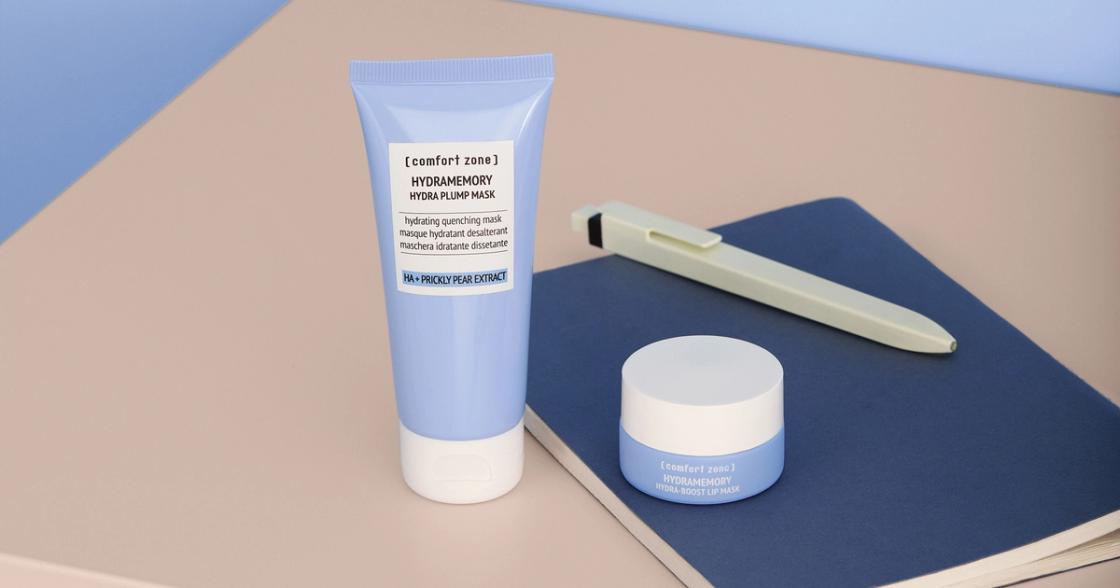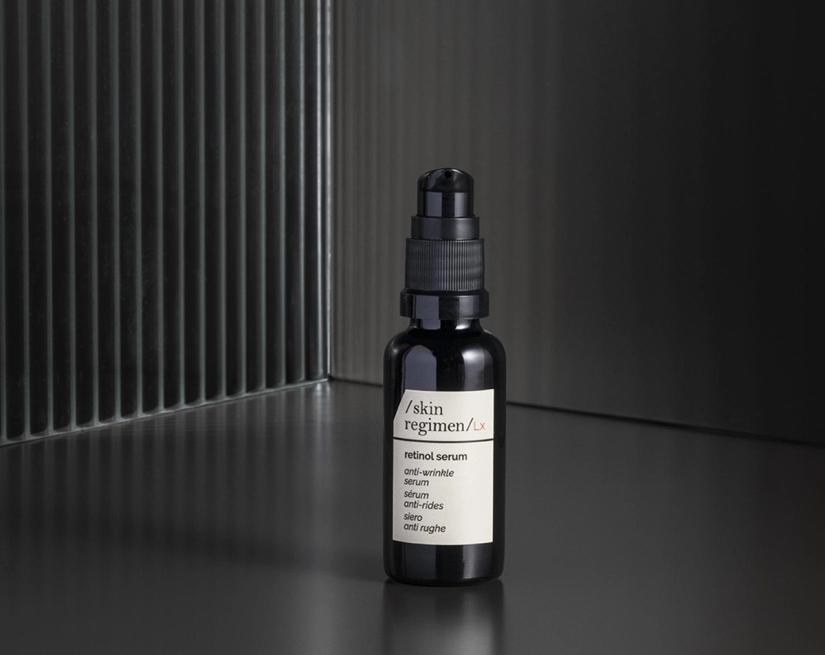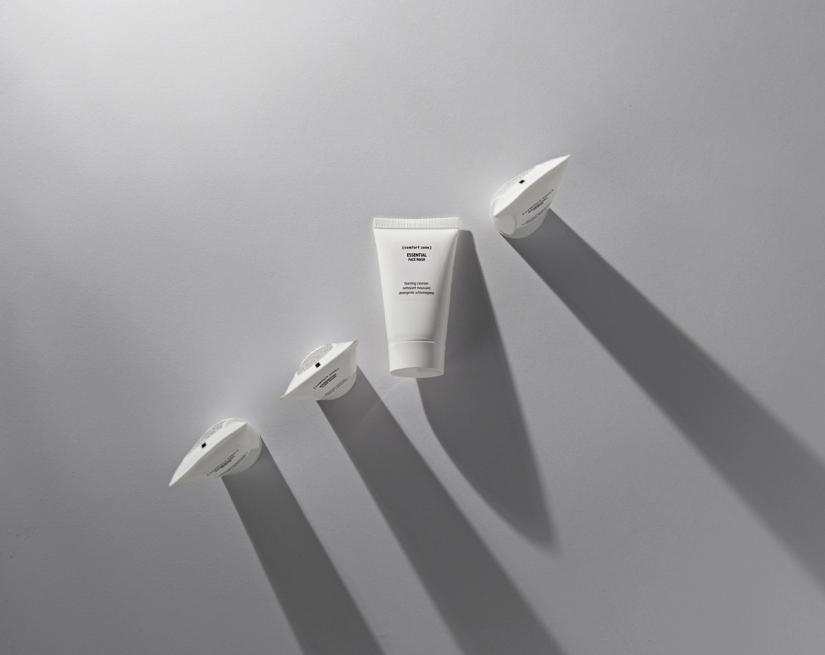skin care
Dry vs Dehydrated Skin: What's the Difference?
Eve Mérinville | Corporate RD Excellence & SC RD and Innovation Director
10 min read
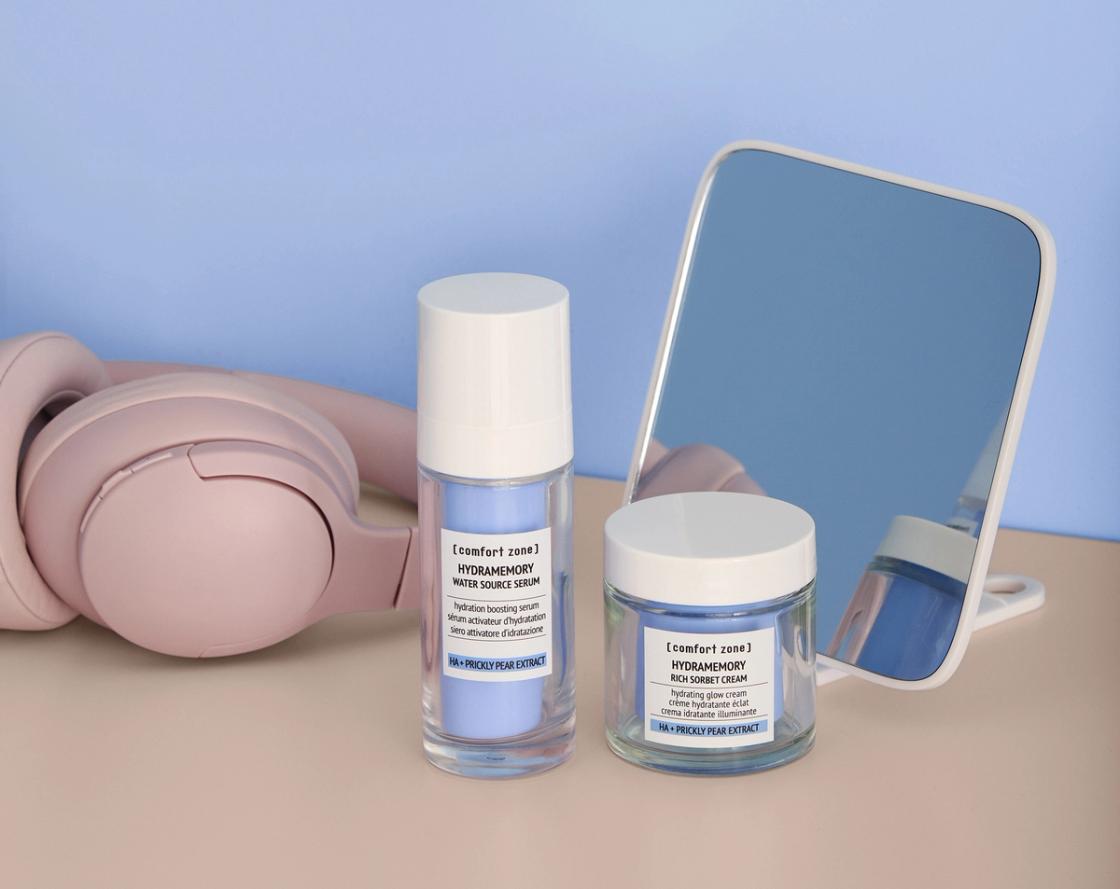
Contrary to what many people think, having dry skin is not the same as having dehydrated skin. Dry skin is a skin type caused by reduced sebum production in the skin. Dehydrated skin, on the other hand, is a temporary condition of our skin due to a lack of water within the tissue.
These conditions present similarly, but appearances can be misleading. Distinguishing one from the other is essential in directing us toward the right treatment and simple daily habits that make it possible to turn our skin's health around.
Understanding Your Skin
One of the most evocative definitions of the skin is undoubtedly that of Marcello Comel, a well-known 20th-century Italian dermatologist, who described it as “the monumental facade of the human body.” This metaphor highlights two fundamental aspects of our skin: its impressiveness, being the largest organ of our body, and its crucial role as a barrier against external threats such as bacteria, chemicals, and pollution.
The skin not only protects us but also regulates body temperature, prevents fluid loss, and enables sensory perception thanks to its numerous nerve endings. In short, the skin ensures the integrity of what is inside by protecting us from what is outside.
The Difference Between Dry and Dehydrated Skin
What’s the difference between dry skin and dehydrated skin? Simply put, dry skin lacks sebum (natural oils), while dehydrated skin lacks water within the tissue. Dry skin is a skin type, like oily or sensitive skin, and is characterized by a lipid deficiency due to reduced sebum production. This characteristic makes dry skin fragile, dull, and prone to flaking.
Dehydrated skin is a temporary condition that can affect any skin type and is caused by a lack of water. Considering that our body is about 70 percent water, maintaining the correct level of hydration is essential for the health of our skin.
Why Do Dryness and Dehydration Occur?
Dryness and dehydration of the skin can be caused or aggravated by several factors related mainly to the environment, lifestyle, and/or genetics.As far as the environment is concerned, the main culprits in the dryness and dehydration of our skin are:
- Exposure to the sun
- Extreme climates
- Pollution
These factors can damage the tissue and cause the development of skin inflammation and irritation.
When we add other contributors like low water intake, daily washing with overly hot water, and the use of products that disrupt the skin’s natural balance, we identify the primary causes of both skin dryness and dehydration.
Particularly for a dehydrated face, our skin needs special care to keep its structure intact and preserve its vitality. Given the delicacy of facial skin, it is not uncommon to experience dehydration—often marked by dryness and flaking, along with a dull, rough, and depleted appearance.
To restore a healthy glow to the face, you must stay well-hydrated and use moisturizing products as well as gentle, non-aggressive cleansers appropriate for your skin’s condition.
Signs To Determine if Your Skin Is Dry or Dehydrated
Understanding whether your skin is dry or dehydrated is key to choosing the right care. While they may seem similar, these two conditions have different causes and require different solutions. Here’s how to tell them apart.
Symptoms of Dry Skin
Dry skin appears rough and scaly with visible cracks. Immediately after cleansing, dry skin does not appear full and soft, but instead looks taut and almost at the point of breaking. The complexion is dull and the skin may be itchy, reddened, and irritated.
Symptoms of Dehydrated Skin
Dehydrated skin is a temporary condition caused by a lack of water within the tissue. It manifests itself as a dull and uneven appearance with more noticeable fine lines, more pronounced wrinkles, and darker circles under the eyes. Because of these concerns, dehydrated skin can often be mistaken for signs of premature aging.
Do-At-Home Test for Dehydrated Skin
There are two simple tests you can do at home to tell if your skin is dehydrated:
- Pinch Test: Also used to determine skin elasticity, this involves gently pinching the back of your hand or cheek. If the skin wrinkles and struggles to return to its natural shape immediately, it may indicate dehydration (a lack of water) and decreased elasticity.
- Cotton Test: Gently pass a dry cotton pad over your cleansed face. If you feel any friction or resistance, your skin is probably dehydrated.
While these at-home tests can help determine if you have dehydrated skin, they are no substitute for a dermatologist’s evaluation. A qualified skin care provider can accurately distinguish between dry and dehydrated skin, helping to guide the selection of the most appropriate treatment.
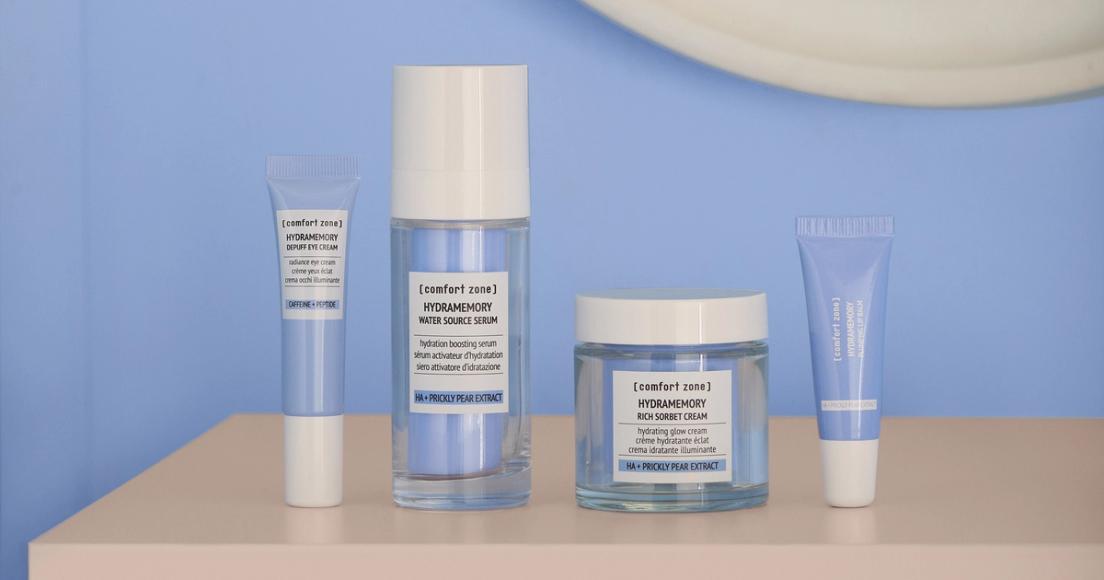
How To Treat Dry Skin
Dehydrated skin is a temporary condition that can be treated by correcting specific habits and following a daily skincare routine. Adequate daily hydration is essential, and according to the World Health Organization (WHO) guidelines, an intake of around 2 liters is recommended. This is an often overlooked but vital factor for maintaining overall health, including the skin.
Limiting the consumption of caffeine and alcohol while also increasing the intake of water-rich fruits and vegetables, such as cucumbers or watermelon, helps keep the skin hydrated and elastic, preventing dehydration.
Additional key factors in helping treat dehydrated skin involve establishing regular physical activity, managing stress effectively, and maintaining a healthy sleep routine.
When evaluating your skincare routine in relation to dehydrated skin, the most beneficial products are those with hyaluronic acid or betaine, substances with an osmotic effect that retain a high quantity of water within the skin tissue.
Tips To Improve Your Skin Health
Although dry skin and dehydrated skin are different conditions, each needs specific attention to ensure the integrity of the entire tissue. These are some of the best practices when caring for these skin conditions:
- Start by focusing on boosting hydration with increased daily water intake, which should never be less than 2 liters.
- Prioritize daily moisturization with skincare products that will support the skin's structure, minimize excessive moisture loss by avoiding unnecessary skin perspiration, and preserve its natural barrier function.
- Avoid cleansers that are too aggressive and choose gentle cleansing methods that respect the skin’s natural properties.
- For both environmental sustainability and skin health, it's important to limit showers or baths to under 10 minutes and avoid excessively hot water, which can exacerbate skin dryness and dehydration.
Connecting Skin Health to Comfort Zone's Dry Skin Collection
Dry skin is exposed to environmental and lifestyle stress factors every day that can worsen an already suboptimal situation. To help prevent worsening dry skin, the Hydramemory Line from Comfort Zone is designed to enhance the skin’s ability to adapt and resist environmental stressors, delivering 70% more immediate hydration and a visibly brighter complexion.
At the heart of this line is Skin-Adaptive™ hydration technology—a cutting-edge approach that blends highly concentrated biomimetic textures with natural ingredients like prickly pear extract. This innovation supports the skin’s ability to adapt to environmental changes and boosts the production of Keratinocyte Growth Factor (KGF) by 39%, enhancing hydration from within.
The two key products in the Hydramemory line are the Hydramemory Rich Sorbet Cream, a cream with a biomimetic sorbet texture, and the Hydramemory Water Source Serum, with a fresh, light texture. Both are designed to provide deep hydration, strengthen the skin barrier, and transfer the resilience of prickly pear into our skin, making it healthier and more resilient.
With the right daily habits and targeted skincare products like those from Comfort Zone, even the driest skin can regain its softness, luminosity, and resilience. Prioritizing hydration—both inside and out—is how you will maintain healthy, balanced skin in any environment.
